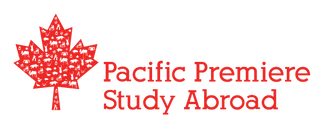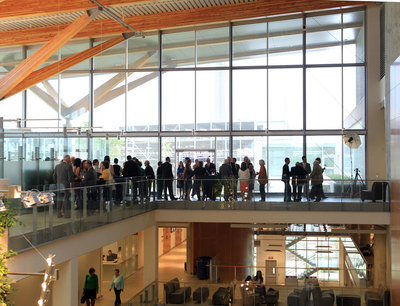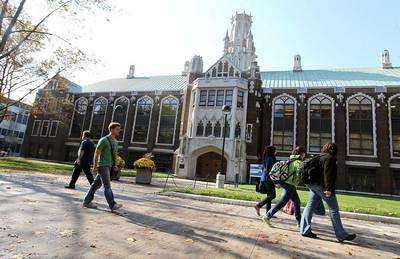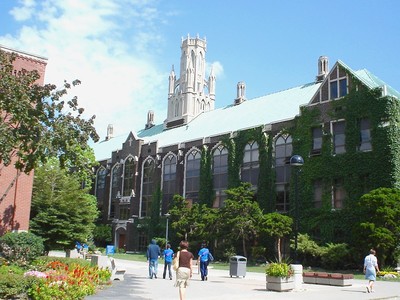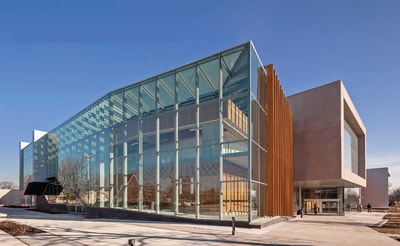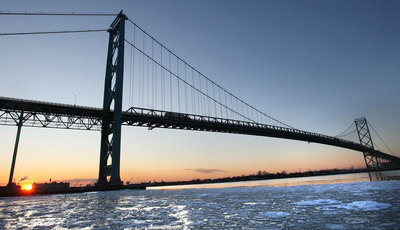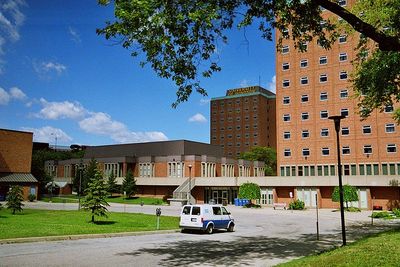โปรแกรม Bachelor of Applied Science in Mechanical Engineering - Aerospace Option
สถาบัน University of Windsor
(เมือง Windsor, รัฐ Ontario)
About University of Windsor
มหาวิทยาลัยวินเซอร์เป็นมหาวิทยาลัยรัฐชั้นนำของประเทศแคนาดา ได้ถูกก่อตั้งในปี 1857 ในนาม Assumption College และ ได้ก่อตั้งเป็นมหาวิทยาลัยวินเซอร์ในปี 1962
- สถาบันตั้งอยู่ใจกลางเมืองวินเซอร์
- เพียง 3 ชั่วโมงจากเมืองโตรอนโต้
- สถาบันติดกับแม่น้ำ Detriot River และ เขตเมือง Windsor Detriot Metropolitan area เพียงข้ามสะพานจะถึงประเทศสหรัฐอเมริกา ถือว่าที่ตั้งเหมาะเป็นอย่างยิ่งสำหรับท่านที่สนใจที่จะศึกษา พร้อมหาประสบการณ์ในประเทศแคนาดา และ สหรัฐอเมริกา
Why choose University of Windsor?
- มหาวิทยาลัยวินเซอร์มีชื่อเสียง และ คุณภาพการศึกษาดีเยี่ยม (High Academic Excellence)
- คณาจารย์ และ นักศึกษามาจากทั่วโลก (Truly international)
- หลากหลายโปรแกรมที่น่าสนใจในระดับ ปริญญาตรี ปริญญาโท และ ปริญญาเอก
- หลากหลายสาขาการเรียน
- ได้สัมผัสทั้งประเทศแคนาดา และ ประเทศอเมริกา ซึ่งห่างเพียงไม่กี่นาทีข้ามสะพาน Ambassador bridge (Enjoy the best of both worlds, Canada & USA)
- สามารถทำงานระหว่างเรียนได้ 20 hours/ week
- สามารถทำงานหลังเรียนจบอย่างถูกต้องตามกฎหมาย
Program Details
Mechanical Engineering includes two broad areas of study: thermofluids (which involves heat and power) and solid mechanics (designing mechanical parts, determining the forces on those parts during operation, and analyzing their performance as part of larger machines and systems.)
- Teaches the manufacturing, maintenance and logistics that serve the aerospace industry
- Involves the application of aerospace-related skills toward developing the next generation of aerospace materials, production methods and components, and toward improving aerospace operational challenges
- Learn about the fundamentals behind aerospace design, and especially the manufacturing, maintenance, and logistics involved in serving the aerospace industry
Courses:
94-370. Aerospace Engineering Fundamentals
History of flight and aircraft evolution. Aircraft operating principles. Airfoil and wing aerodynamics. Aerospace propulsion systems (turbojets, turbofans, turboprops, and rockets). Lab on performance estimation and measurement for a turbojet engine. Aircraft design. Weight estimation. Aircraft systems. Aircraft materials and structures. Governance of aviation in North America. Design studies of aircraft or spacecraft and/or components thereof. (Prerequisites: 62-215, 62-216, semester 6 or higher standing; and Aerospace option students or permission of instructor.) (Co-requisites: 92-317, 92-320.)
94-371. Aerospace Materials and Manufacturing
Properties and selection of metals, ceramics, polymers, and composite materials for aerospace applications. Structural and gas-turbine alloys. Machining, casting, forming, heat treating, and joining processes for original manufacture and repair. Manufacture and application of composites. In-service materials degradation. (Pre-requisites: 94-370.)
94-470. Aerospace Propulsion
Application of gas dynamics and thermodynamics to aerospace engines. Analysis of engine cycles. Theory and design of propellers; turboprop engine analysis, Internal combustion and gas turbine engines. Component design for compressors, combustors, afterburners, exhaust nozzles. (Pre-requisites: 92-317, 92-320, 94-370, and semester 7 or higher standing.)
94-471. Aerodynamics and Performance
Analysis of aircraft configurations. Viscous and compressibility effects. Manoeuvering loads and load factors; implications of manoeuverability on thrust requirements. Aircraft stability and control. (Pre-requisites: 92-320, 94-370, and Semester 7 or higher standing.)
94-472. Flight Dynamics and Control of Unmanned Aerial Vehicles
Flight dynamics modelling for fixed-wing aircraft and rotorcraft. Low-Reynolds number considerations applicable to unmanned aerial vehicles (UAVs). Control theory and state-space control schemes. State-space controller design for UAVs. Lab(s) involving control of virtual and/or physical UAV models. (Pre-requisites: 94-370 and 94-471)
Career Tracks:
Graduates can be found at all levels of engineering and management from small private companies to larger, multinational corporations, and government ministries and services.
- State-of-the-art manufacturing and production
- Business
- Government
- Systems design/operation/building/maintenance
- Consulting
- Transportation
- Pollution control and prevention
- Advanced computing and communications
- Medicine and medical technology
- Bio-based engineering
- Research and development
- Structural design
- Failure analysis
- Construction and infrastructure renewal
- Scheduling and optimization
- Automotive industry
- Environmental protection
- Project, process and systems management
- Robotics and advanced electronics
- Power generation and distribution
Admission Requirements:
ENG4U, MHF4U, SCH4U and SPH4U required. MCV4U strongly recommended. 74% average in all attempted Science and Math courses, excluding SBI4U. Students may apply for optional Co-op when applying for admission to the program.
Contact Us
หากน้อง ๆ หรือคุณพ่อคุณแม่มีคำถาม หรือสนใจรับโบรชัวร์ สามารถแจ้งได้ที่
ออฟฟิศแปซิฟิคสาขากรุงเทพฯ
(083) 358-7000, (086) 881-3084, (085) 658-7000
ออฟฟิศแปซิฟิคสาขาแวนคูเวอร์
(778) 995-4763, (604) 716-0478
พี่ ๆ ทีมงานยินดีพร้อมประสานงานและบริการการสมัครวีซ่าประเทศแคนาดาและวีซ่าอเมริกาอย่างครบวงจรค่ะ นอกจากนี้จะมีทีมงานต้อนรับและศูนย์แปซิฟิคสาขาเมืองแวนคูเวอร์ค่ะ
